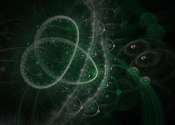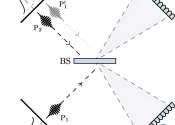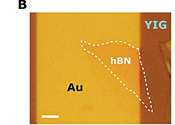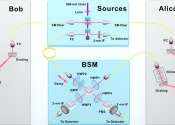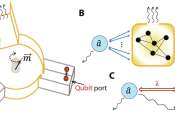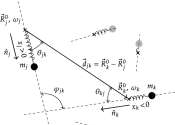In physics, a quantum (plural: quanta) is an indivisible entity of a quantity that has the same units as the Planck constant and is related to both energy and momentum of elementary particles of matter (called fermions) and of photons and other bosons. The word comes from the Latin "quantus", for "how much." Behind this, one finds the fundamental notion that a physical property may be "quantized", referred to as "quantization". This means that the magnitude can take on only certain discrete numerical values, rather than any value, at least within a range. There is a related term of quantum number.
A photon is often referred to as a "light quantum". The energy of an electron bound to an atom (at rest) is said to be quantized, which results in the stability of atoms, and of matter in general. But these terms can be a little misleading, because what is quantized is this Planck's constant quantity whose units can be viewed as either energy multiplied by time or momentum multiplied by distance.
Usually referred to as quantum "mechanics", it is regarded by virtually every professional physicist as the most fundamental framework we have for understanding and describing nature at the infinitesimal level, for the very practical reason that it works. It is "in the nature of things", not a more or less arbitrary human preference.

